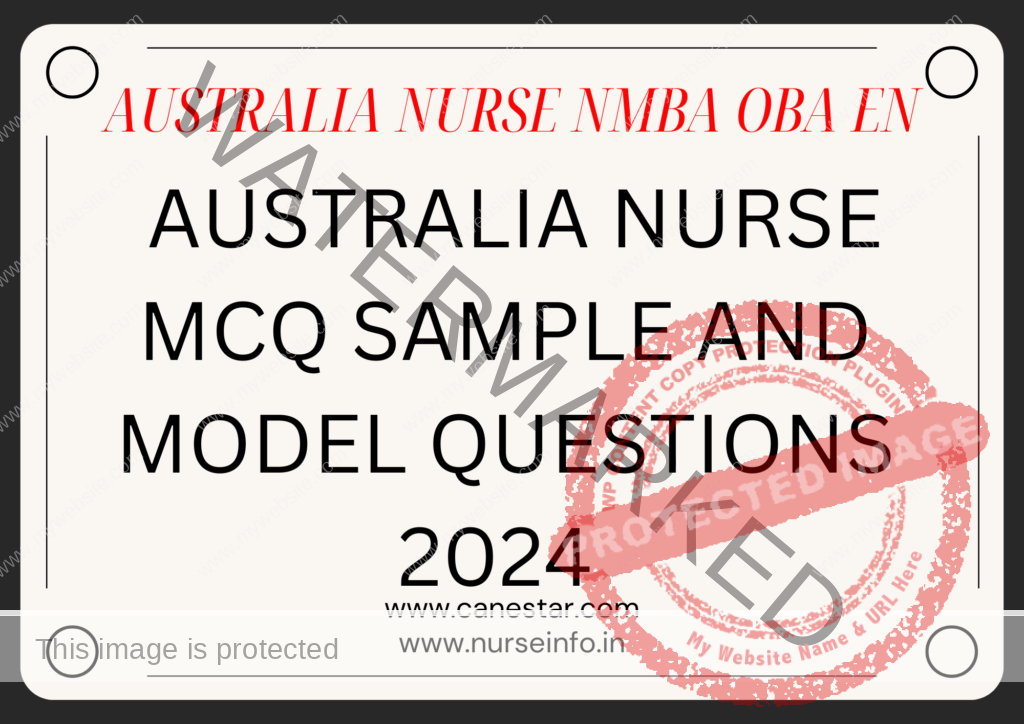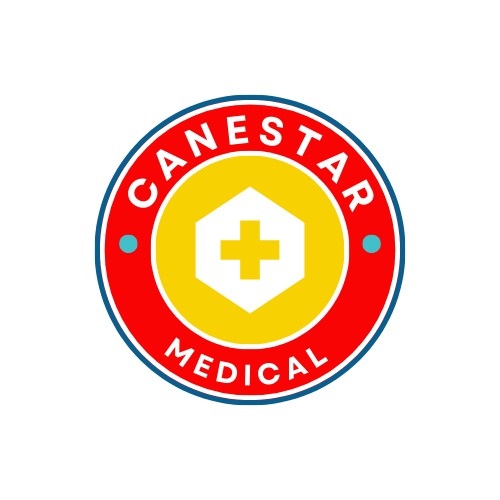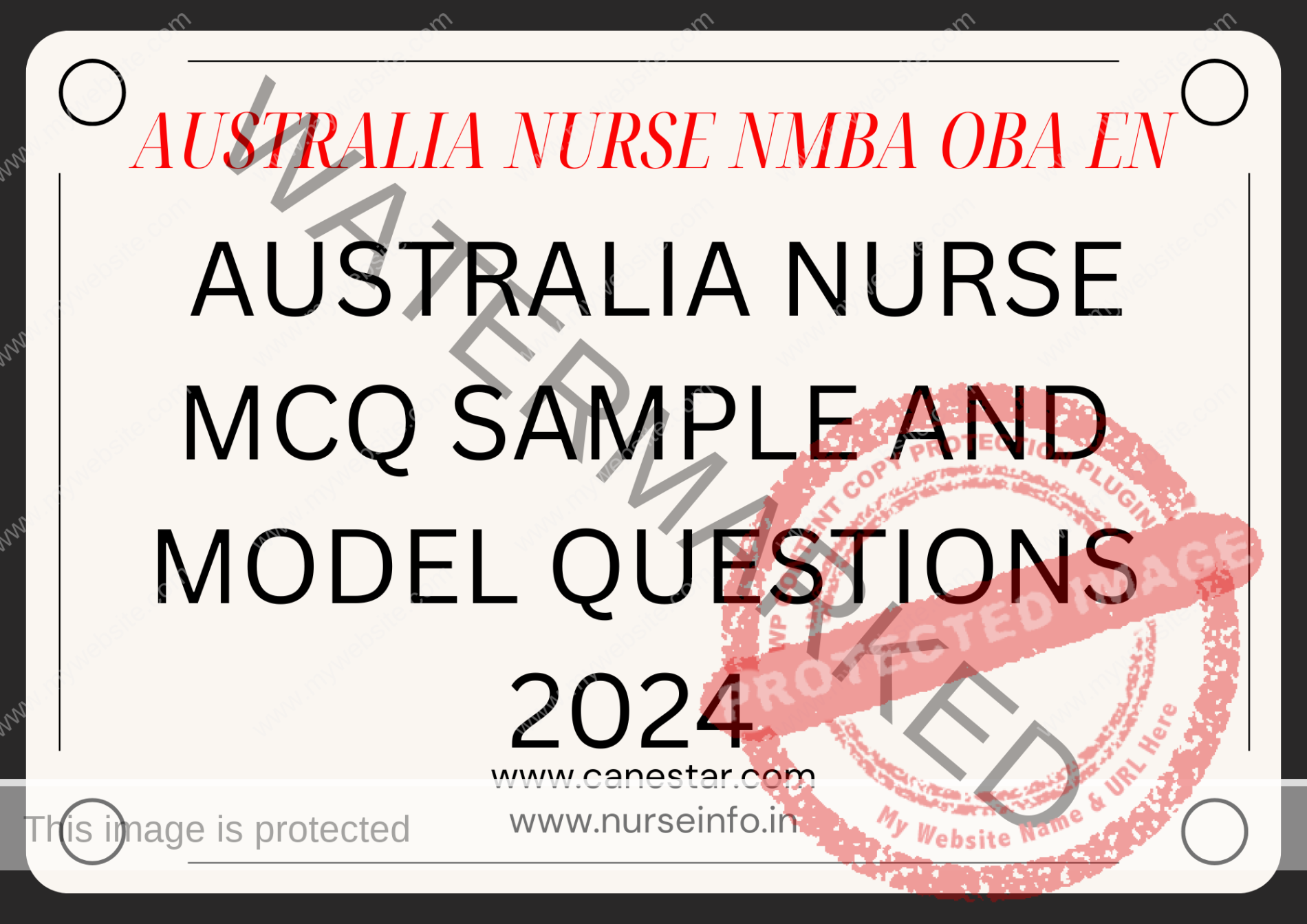AUSTRALIA NURSE NMBA OBA EN MCQ SAMPLE AND MODEL QUESTIONS
AUSTRALIA NURSE MCQ SAMPLE AND MODEL QUESTIONS
Which of the following is the primary function of the respiratory system?
A) Regulation of body temperature
B) Transport of nutrients
C) Exchange of oxygen and carbon dioxide
D) Regulation of blood pressure
Answer: C) Exchange of oxygen and carbon dioxide
Question:
Which of the following is NOT a type of muscle tissue found in the human body?
A) Skeletal muscle
B) Cardiac muscle
C) Smooth muscle
D) Adipose tissue
Answer: D) Adipose tissue
Question:
Which of the following glands is responsible for producing insulin?
A) Pancreas
B) Thyroid
C) Pituitary
D) Adrenal
Answer: A) Pancreas
Which organ is primarily responsible for detoxifying harmful substances in the body?
A) Liver
B) Kidneys
C) Lungs
D) Pancreas
Answer: A) Liver
What is the primary function of red blood cells?
A) Transporting oxygen
B) Fighting infections
C) Regulating blood pressure
D) Producing antibodies
Answer: A) Transporting oxygen
Which hormone is responsible for regulating blood glucose levels?
A) Insulin
B) Glucagon
C) Estrogen
D) Testosterone
Answer: A) Insulin
Which part of the brain is responsible for controlling vital functions such as breathing and heart rate?
A) Cerebellum
B) Hypothalamus
C) Brainstem
D) Cerebrum
Answer: C) Brainstem
Which of the following is NOT a function of the respiratory system?
A) Exchange of gases
B) Regulation of blood pH
C) Production of urine
D) Vocalization
Answer: C) Production of urine
What is the role of the nephrons in the kidneys?
A) Regulation of blood pressure
B) Filtration of blood
C) Production of red blood cells
D) Digestion of proteins
Answer: B) Filtration of blood
Which of the following is NOT a component of the lymphatic system?
A) Lymph nodes
B) Spleen
C) Liver
D) Thymus
Answer: C) Liver
Which hormone is responsible for the fight or flight response during times of stress?
A) Cortisol
B) Adrenaline (epinephrine)
C) Thyroxine
D) Estrogen
Answer: B) Adrenaline (epinephrine)
What is the function of the gallbladder?
A) Digestion of carbohydrates
B) Storage and concentration of bile
C) Regulation of blood sugar levels
D) Production of insulin
Answer: B) Storage and concentration of bile
Which of the following is NOT a function of the skin?
A) Regulation of body temperature
B) Protection against pathogens
C) Production of insulin
D) Sensation of touch, pressure, and pain
Answer: C) Production of insulin
What is the primary function of the endocrine system?
A) Regulation of body temperature
B) Coordination of voluntary movements
C) Secretion of hormones to regulate bodily functions
D) Transport of nutrients and oxygen
Answer: C) Secretion of hormones to regulate bodily functions
Which of the following is NOT a function of the digestive system?
A) Absorption of nutrients
B) Regulation of blood glucose levels
C) Breakdown of food into smaller molecules
D) Elimination of waste
Answer: B) Regulation of blood glucose levels
What is the role of platelets in the blood?
A) Oxygen transport
B) Clotting to prevent bleeding
C) Fighting infections
D) Producing antibodies
Answer: B) Clotting to prevent bleeding
Which of the following is NOT a function of the skeletal system?
A) Protection of internal organs
B) Regulation of blood pressure
C) Support for the body
D) Production of blood cells
Answer: B) Regulation of blood pressure
Which part of the brain is responsible for coordinating voluntary muscle movements?
A) Cerebellum
B) Hypothalamus
C) Medulla oblongata
D) Thalamus
Answer: A) Cerebellum
What is the function of the alveoli in the lungs?
A) Production of mucus
B) Gas exchange (oxygen and carbon dioxide)
C) Filtering out pathogens
D) Regulation of blood pressure
Answer: B) Gas exchange (oxygen and carbon dioxide)
Which hormone is responsible for the regulation of calcium levels in the blood?
A) Insulin
B) Thyroxine
C) Parathyroid hormone (PTH)
D) Cortisol
Answer: C) Parathyroid hormone (PTH)
What is the role of the pancreas in the digestive system?
A) Regulation of blood glucose levels
B) Production of digestive enzymes
C) Storage of bile
D) Filtration of blood
Answer: B) Production of digestive enzymes
Which of the following is NOT a function of the cardiovascular system?
A) Transport of nutrients and oxygen
B) Regulation of blood glucose levels
C) Removal of waste products
D) Regulation of body temperature
Answer: B) Regulation of blood glucose levels
Which hormone is responsible for regulating water balance in the body?
A) Insulin
B) Estrogen
C) Antidiuretic hormone (ADH)
D) Growth hormone
Answer: C) Antidiuretic hormone (ADH)


